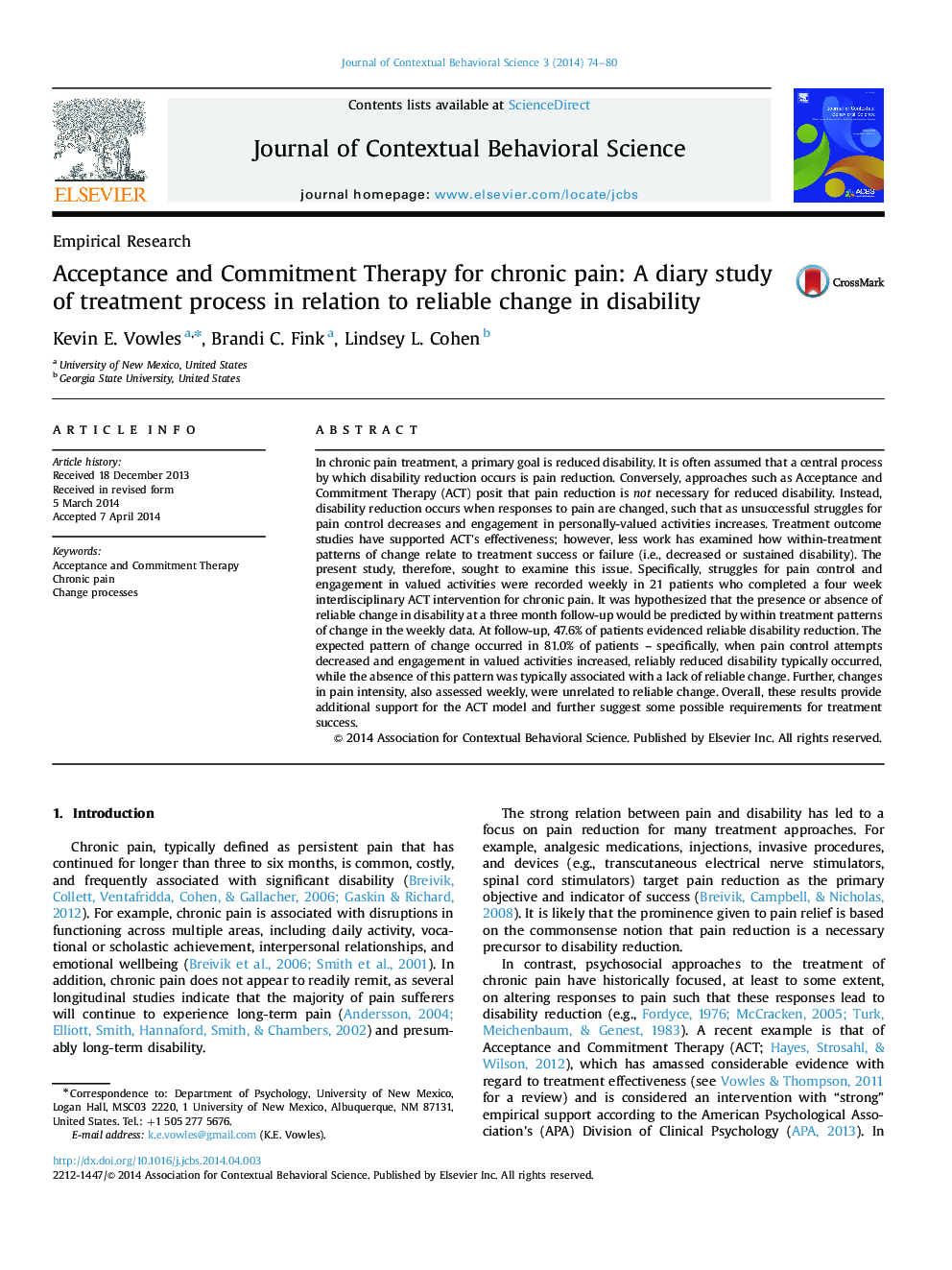| Article ID | Journal | Published Year | Pages | File Type |
|---|---|---|---|---|
| 911188 | Journal of Contextual Behavioral Science | 2014 | 7 Pages |
•Psychosocial treatments aim to alter responses to chronic pain to alter disability.•ACT posits responses to alter: pain control efforts & valued activity engagement.•Change in these responses was examined in treatment in relation to disability change.•80% of patients had a pattern of change consistent with the ACT model.•Results highlight some potential requirements for successful ACT treatment.
In chronic pain treatment, a primary goal is reduced disability. It is often assumed that a central process by which disability reduction occurs is pain reduction. Conversely, approaches such as Acceptance and Commitment Therapy (ACT) posit that pain reduction is not necessary for reduced disability. Instead, disability reduction occurs when responses to pain are changed, such that as unsuccessful struggles for pain control decreases and engagement in personally-valued activities increases. Treatment outcome studies have supported ACT׳s effectiveness; however, less work has examined how within-treatment patterns of change relate to treatment success or failure (i.e., decreased or sustained disability). The present study, therefore, sought to examine this issue. Specifically, struggles for pain control and engagement in valued activities were recorded weekly in 21 patients who completed a four week interdisciplinary ACT intervention for chronic pain. It was hypothesized that the presence or absence of reliable change in disability at a three month follow-up would be predicted by within treatment patterns of change in the weekly data. At follow-up, 47.6% of patients evidenced reliable disability reduction. The expected pattern of change occurred in 81.0% of patients – specifically, when pain control attempts decreased and engagement in valued activities increased, reliably reduced disability typically occurred, while the absence of this pattern was typically associated with a lack of reliable change. Further, changes in pain intensity, also assessed weekly, were unrelated to reliable change. Overall, these results provide additional support for the ACT model and further suggest some possible requirements for treatment success.
